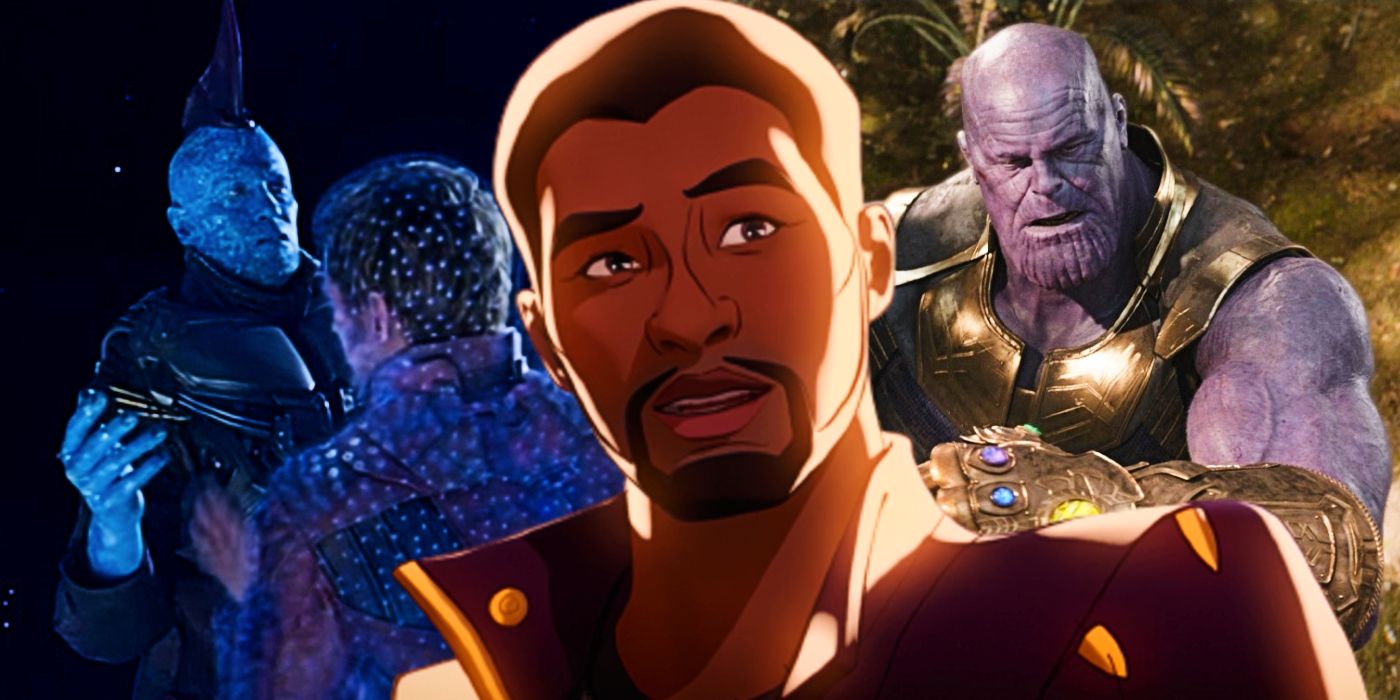
Warning: Contains SPOILERS for Marvel's What If...? episode 2.
Marvel's What If...? episode 2 introduces viewers to a timeline in which T'Challa became Star-Lord - and here's how that change in the timeline ripples out to affect the future of the MCU. The Marvel Cinematic Universe has expanded to embrace the Multiverse, with Marvel's What If...? exploring a range of alternate timelines in which history played out differently - ostensibly because of a single decision.
What If...? episode 2 is one of the most eagerly-anticipated stories, introducing a timeline in which T'Challa was taken from Earth by Yondu and the Ravagers in 1988 instead of Peter Quill. It features the late Chadwick Boseman reprising the role of T'Challa, and it serves as something of a character piece for his beloved Marvel superhero, exploring the effect T'Challa's presence would have if he had traveled to the stars. The ripple effect of this one change is quite remarkable, with T'Challa changing the entire universe.
T'Challa's version of Star-Lord is very different to the one viewers first met in Guardians of the Galaxy, which also means greater differences elsewhere. Here are the biggest changes in the MCU timeline caused by T'Challa becoming Star-Lord instead of Peter Quill.
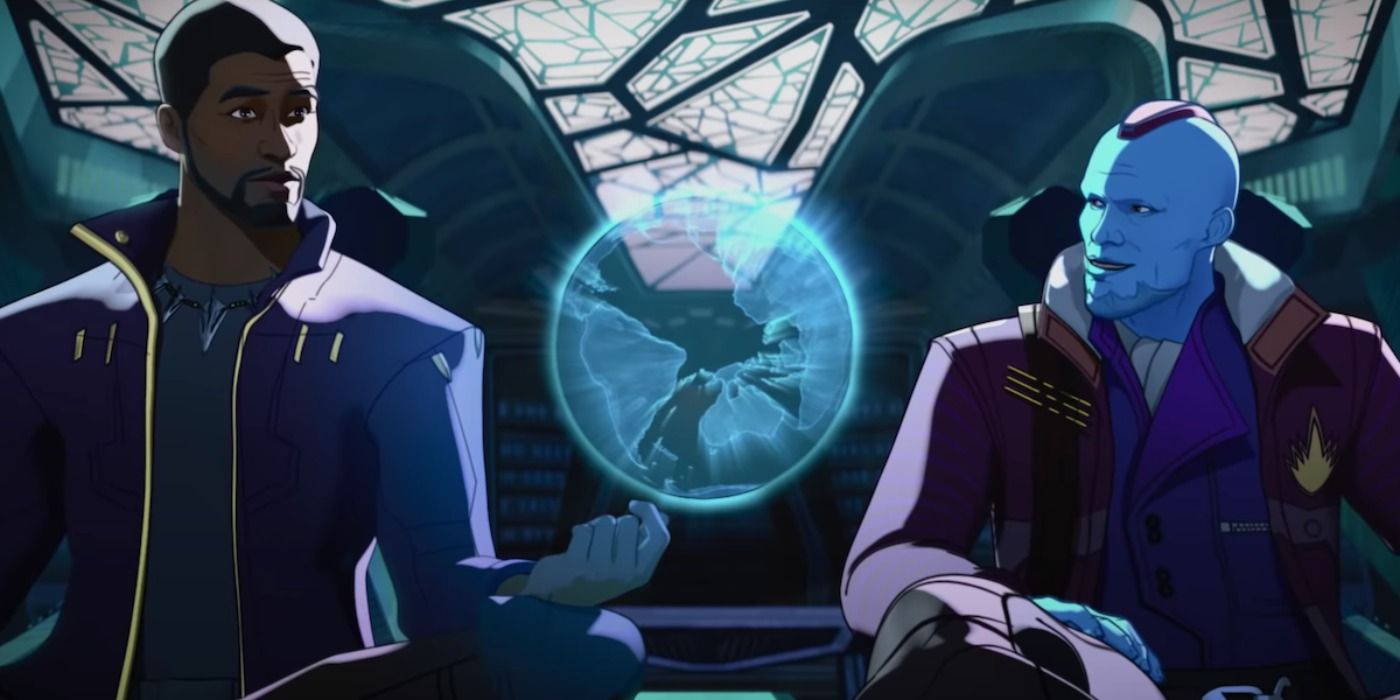
The most profound effect is on the Ravagers themselves, because it seems T'Challa has had a transformative effect on them. Yondu found himself unable to resist T'Challa's enthusiasm and optimism, and consequently Yondu was redeemed long before that happened in the mainstream MCU. Under the leadership of T'Challa's "Star-Lord," the Ravagers became a force for good across the entire galaxy. T'Challa modeled the reformed Ravagers on Robin Hood and his Merry Men, committing them to robbing from the rich in order to give to the poor. Over time they have become a closely-knit family, and they've clearly been proactive in identifying - and dealing with - potential threats. One of the most striking interventions saw the Ravagers prevent the Kree invasion of Kylos, meaning Drax never lost his family. No doubt there have been countless small acts of heroism across the cosmos.
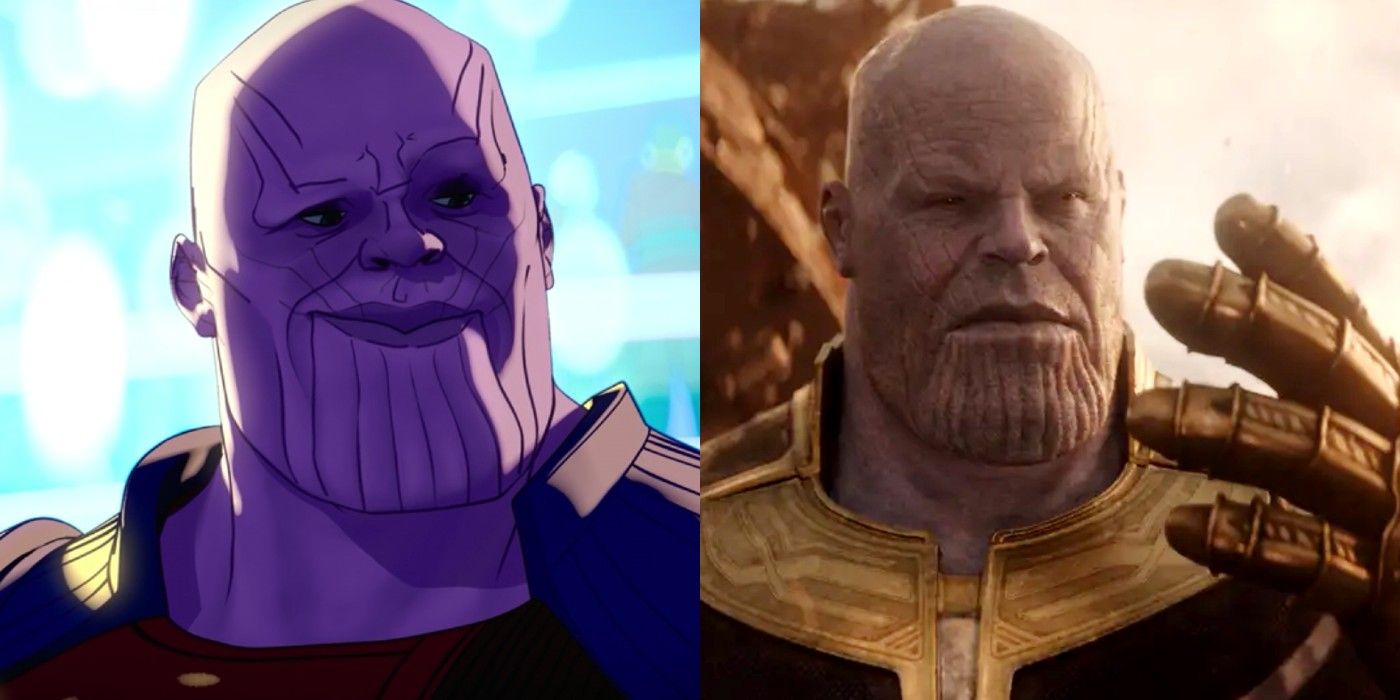
In the main MCU timeline, Thanos the Mad Titan appears to have been too formidable a force for anybody to confront; this was not the case in the timeline where T'Challa became Star-Lord. Rather than engage Thanos in battle, T'Challa appears to have confronted him in a philosophical debate, successfully highlighting the flaws in Thanos' plan to erase half the life in the universe. The Mad Titan remains drawn to this idea on an instinctive level, reflecting his bloodlust more than anything else, but it seems T'Challa's appeal to logic persuaded him to curb his more vicious impulses. The Infinity Stones don't seem anywhere near as important in this timeline, because Thanos was the only one to come up with the idea of combining their power; abandoning this quest, he retired as a warlord, and the Infinity Gauntlet was never formed.

In a surprising twist, the Collector becomes the galaxy's most dangerous crime lord - even bringing in Thanos' former lieutenants, the Black Order, as leaders of his security force on Knowhere. Marvel's What If...? episode 2 reinvents the Collector as a dangerous gangster, one who uses his wealth to acquire precious treasures. His operation has expanded significantly across the galaxy; he has several items he acquired in the main MCU timeline, such as Howard the Duck and Cosmo the telepathic dog, but he has also successfully gained prizes he did not possess elsewhere in the MCU - and these illustrate just how powerful he has become. One of the most impressive artifacts he owns is a Necrosword taken from Hela, revealing the Collector's agents managed to defeat the Asgardian Goddess of Death - something Thor was only able to achieve by destroying Asgard itself. Even more impressively, Hela was defeated without the Necrosword being damaged, meaning it was presumably taken from her corpse.
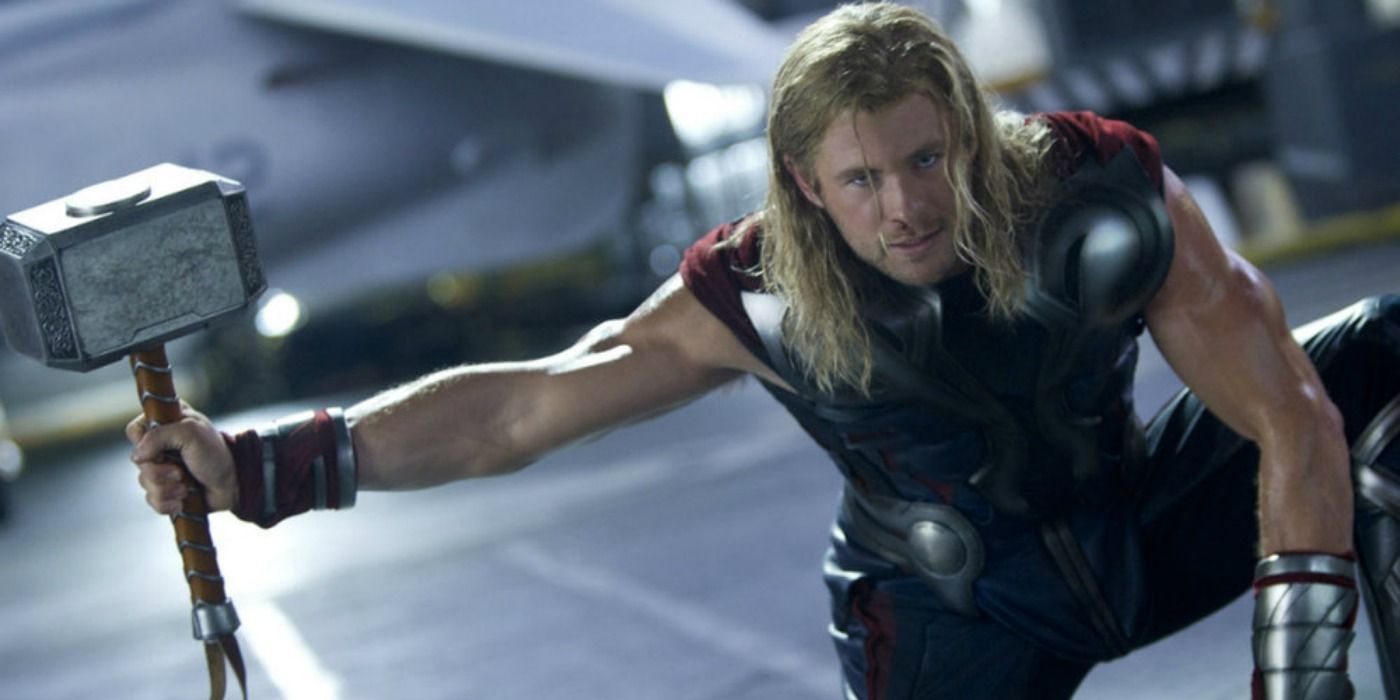
Hela is not the only Asgardian the Collector's forces have encountered. Although he does not use it, he also possesses Thor's enchanted hammer Mjolnir. What If...? episode 2 claims to be set 20 years after T'Challa was taken from Wakanda by the Ravagers, meaning it takes place in 2008 - and that has profound implications for Thor's story in this timeline. The God of Thunder must have been encountered by the Collector's agents long before he was ever banished to Midgard, before a worthiness enchantment was placed upon Mjolnir by Odin.
The presence of Mjolnir may well indicate just how the Collector expanded his sphere of influence. It is important to remember that, although Odin served as protector of the Nine Realms, the Asgardians and their protectorate appear to have set themselves apart from wider galactic society. It looks as though the Collector's forces pressed on in these kind of sectors of space, where their presence and actions would go unnoticed. This explains why a proactive group like the Ravagers had not challenged him directly before now.
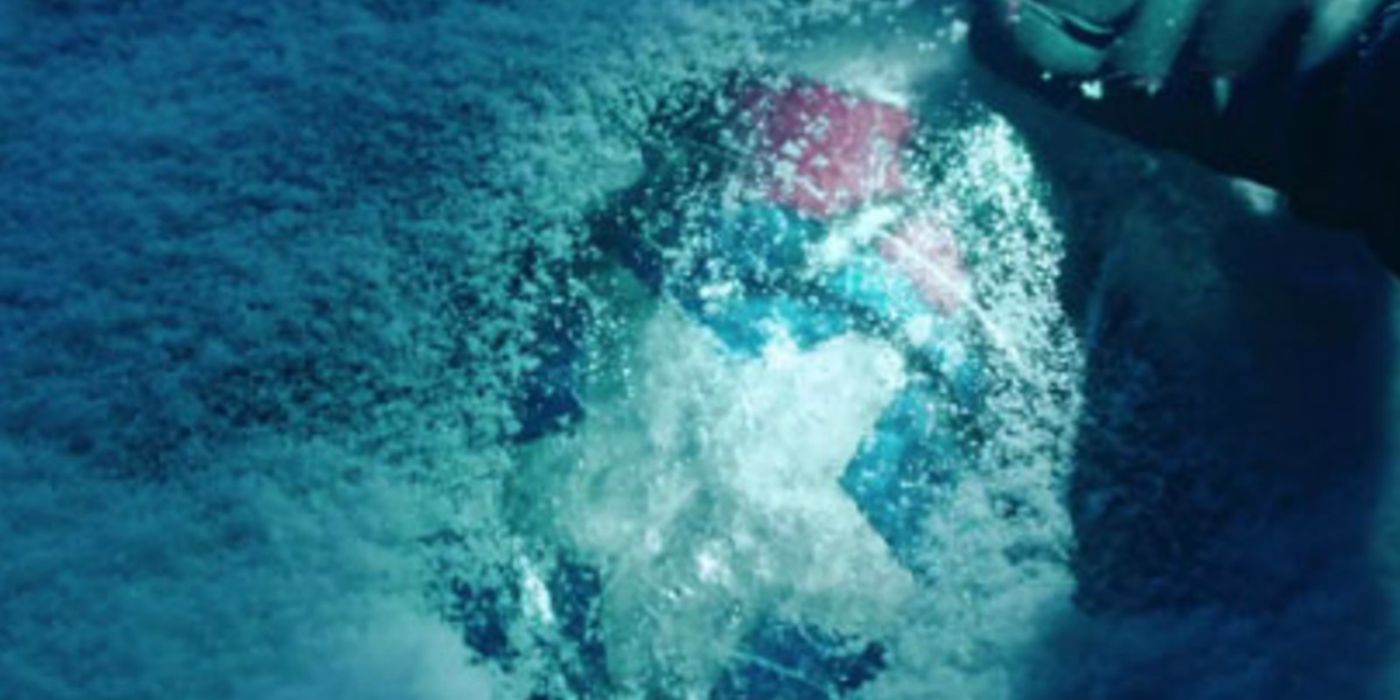
In addition to Thor's enchanted hammer Mjolnir, the Collector also possesses Captain America's shield. This confirms his agents have visited Earth, although there is no evidence they operated openly. They must have learned of Steve Rogers, found his body, and retrieved the shield. Their interference means it is highly likely Captain America did not survive the ice or de-thaw under controlled circumstances, meaning it is improbable he survived the process. Earth has lost two of its foremost champions as a result of the Collector, Thor and Captain America.
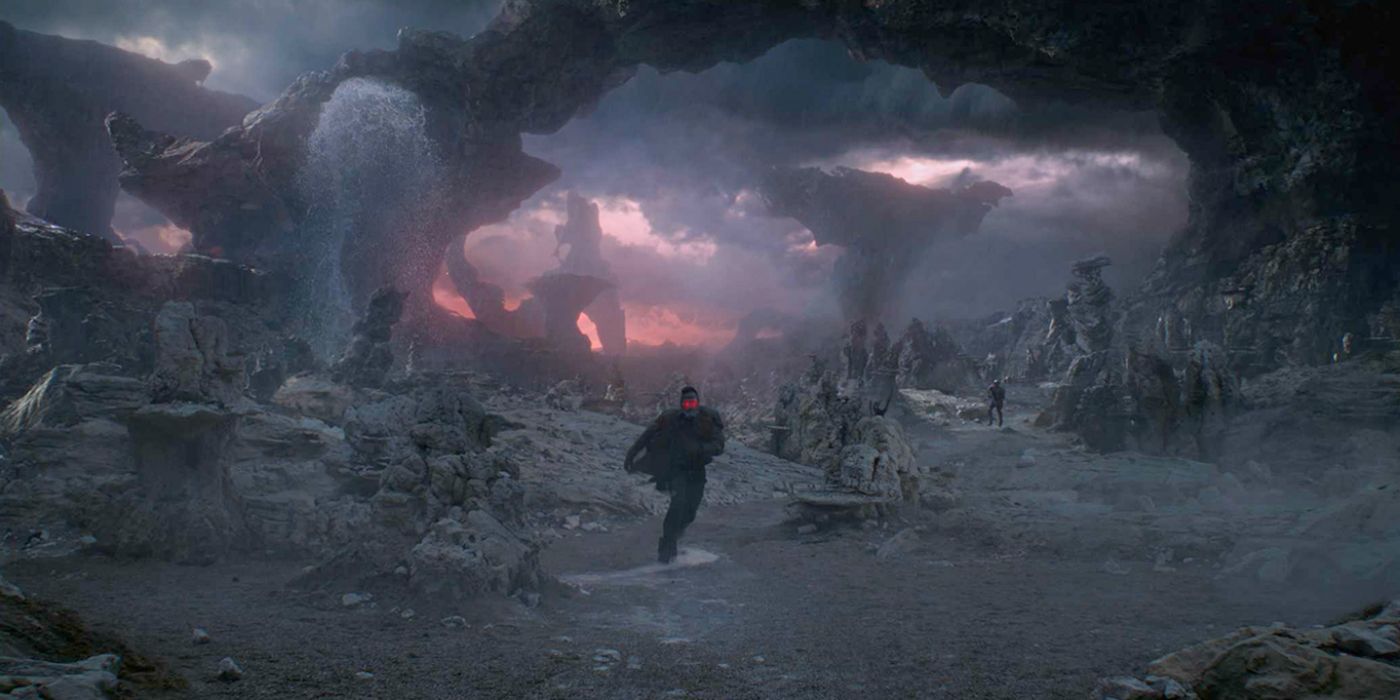
One of the strangest changes in Marvel's What If...? episode 2 is that the Power Stone has become accessible six years early. The Power Stone was concealed on the planet Morag, a perfect hiding place because its tides mean its temple is only exposed once every 300 years - and in the main timeline, that happened in 2014 not 2008. There is a little wriggle-room, however, because Marvel has not previously specified how long this "one-in-300-year" opportunity to acquire the Power Stone lasts. It is possible that, because of Morag's distance from its star, the ocean withdraws for a period of at least six years. Indeed, there may have been earlier hints at this; in the main MCU timeline, the Avengers considered visiting the year 2009 in Avengers: Endgame, suggesting they believed multiple Infinity Stones were actually accessible at this time.
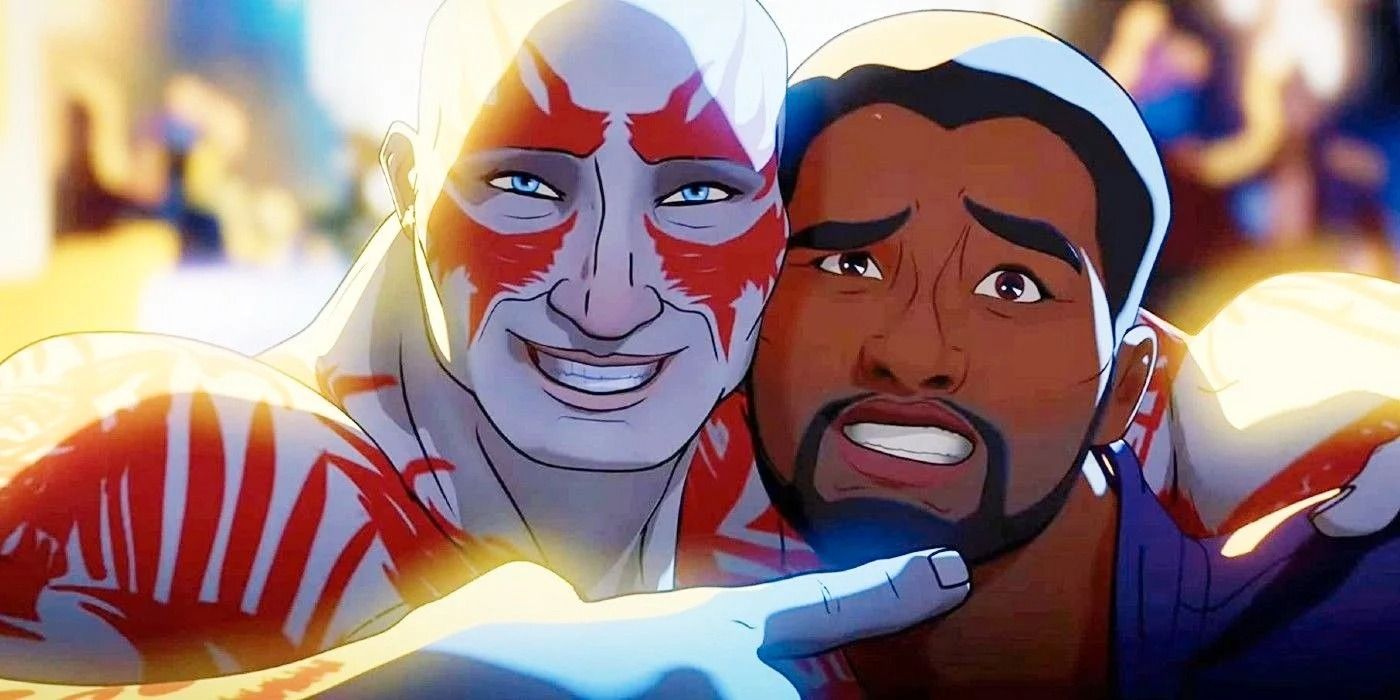
All these changes to the timeline mean the Guardians of the Galaxy never form. Peter Quill is on Earth, Gamora is unseen but Nebula appears to be operating in the black market as a possible love interest for T'Challa, and What If...? episode 2 doesn't even mention Rocket Raccoon, Groot, and Gamora. Oddly enough, though, in part that's because the Ravagers have supplanted the Guardians on a thematic level; James Gunn's Guardians of the Galaxy movies are essentially the story of Star-Lord's quest for a family, but T'Challa has found that family with the Ravagers instead.
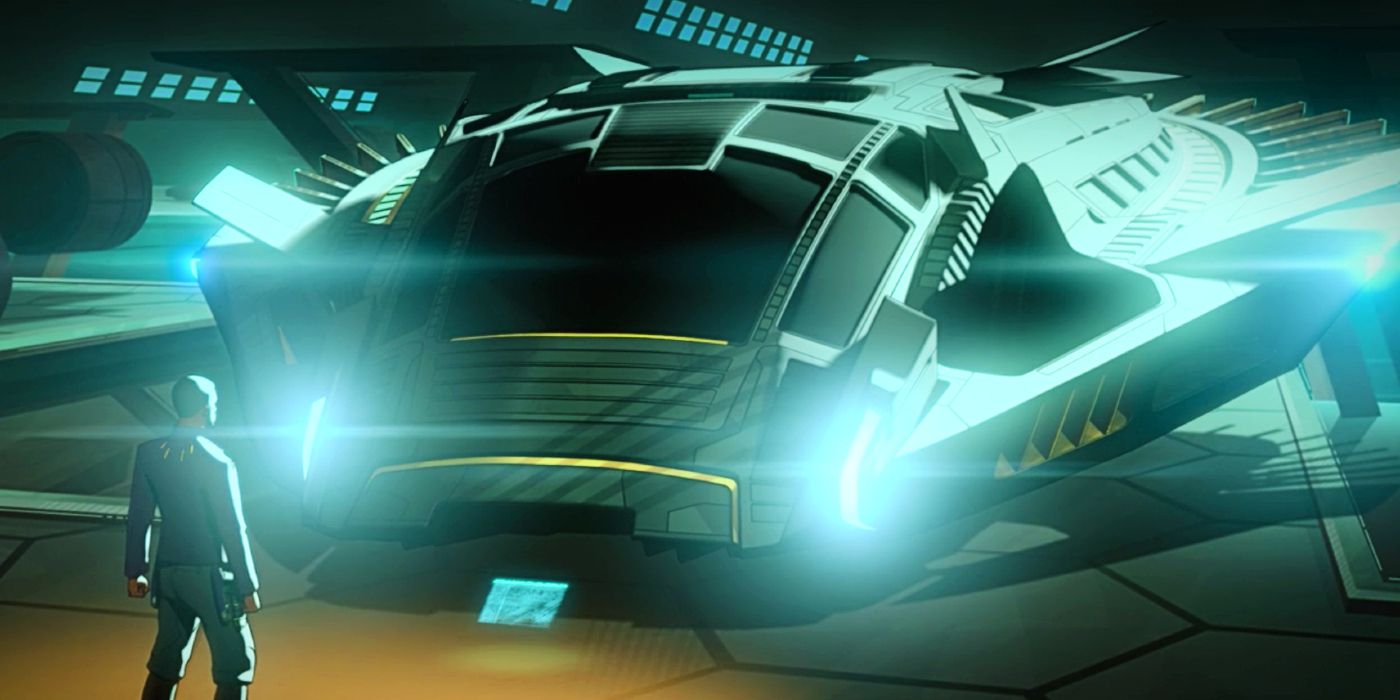
T'Challa's kidnapping changed the history of Wakanda, with the Wakandans pursuing spacefaring technology and sending out a ship into space looking for him; this may be how the Collector's forces learned of Earth in the first place. It makes sense for the Wakandans to be capable of interstellar flight, for in the comics Vibranium is the key to interstellar travel; as revealed in Captain Marvel #5 published in 2014, its unique properties make it ideal for constructing spaceships with remarkably durable hulls. What If...? episode 2 ends with T'Challa returning to Earth, and it would be exciting to see how his arrival changes the future of Wakanda - he most certainly wouldn't be an isolationist.
This particular twist has profound implications for the MCU, because it hints Wakandan society could well be at the brink of discovering interstellar travel in the main timeline as well - especially given Avengers: Endgame confirmed Okoye has corresponded with Captain Marvel, meaning there could well have been a technology exchange.
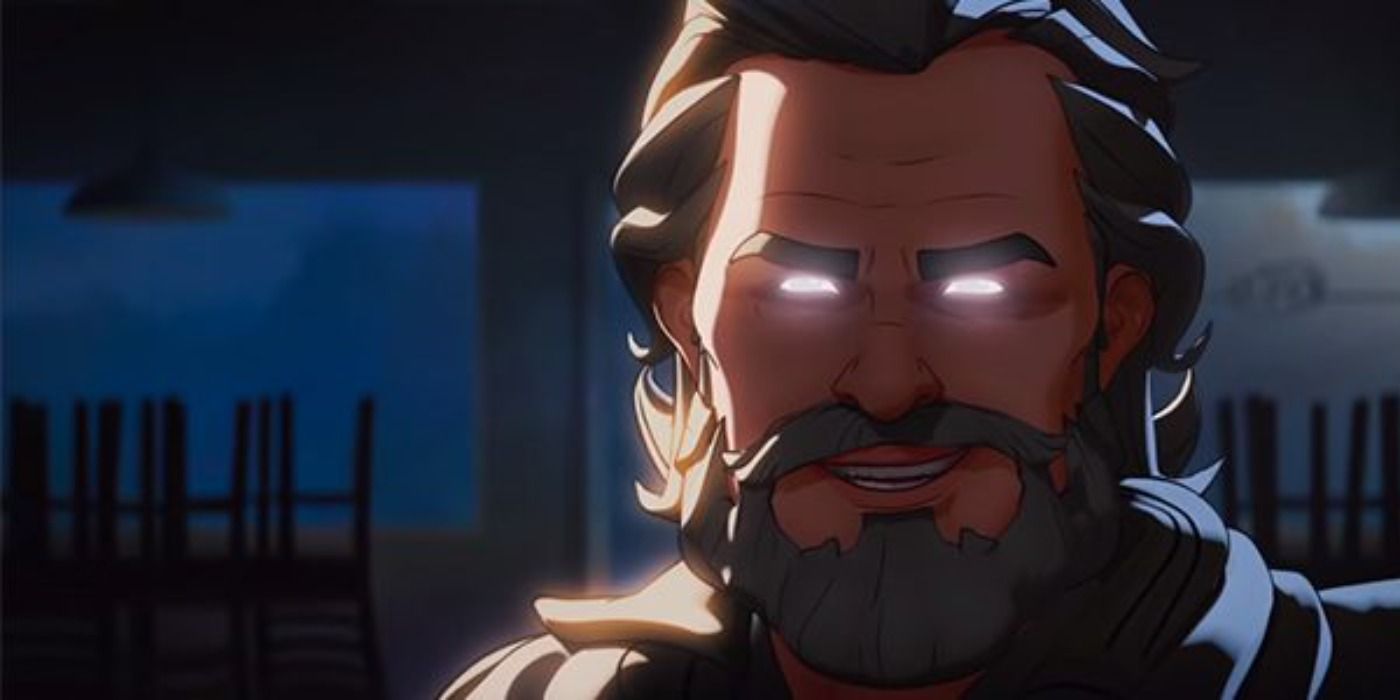
So far, both episodes of Marvel's What If...? have ended with setup for future stories in their respective timelines. The first episode saw Captain Carter emerge from a portal 70 years in the future, meeting Nick Fury and Hawkeye; the second closes with the villainous Celestial Ego paying his son Peter Quill a visit on Earth. As viewers will remember from Guardians of the Galaxy Vol. 2, Ego hasn't sought Peter out because he loves him - but because he wishes to use him to boost his own power and threaten the entire galaxy. While it's possible Ego will succeed in this timeline, this is more likely setup for T'Challa's next adventure - one that could potentially unite the Ravagers and the Wakandans. It would be fascinating to see whether the Peter Quill of this timeline is inherently good, inclined to side with Ego as a villain - or is just an ordinary guy who gets drawn into cosmic affairs.
Marvel's What If...? releases new episodes Wednesdays on Disney+.
No comments:
Post a Comment